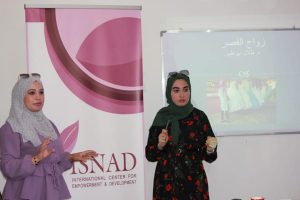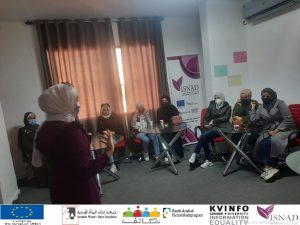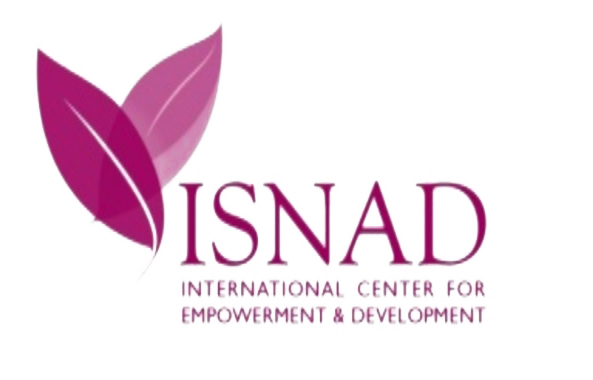-
The United Nations Women’s Protection Line
The United Nations Women’s For those facing access barriers, the program provides field services, including home visits to ensure safety and well-being. Social workers engage directly with women and, when needed, liaise with relevant parties to facilitate protection and resolution.
- Protection Line offers confidential support through a telephone hotline, where trained social workers assess needs and connect women to psychological, legal, or social assistance. Women can also visit the center without prior appointments, ensuring immediate in-person support in a safe environment.
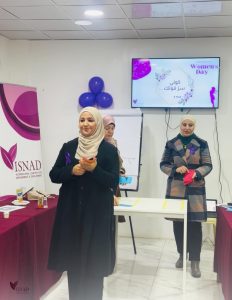
-
The Samim Project: The Art of the Green Environment
The Samim Project: The Art of the Green Environment enhances waste management in East Amman, aligning with the SDGs to create create inclusive, safe, and sustainable cities. It begins with a comprehensive waste assessment to identify waste types and current disposal practices, ensuring effective intervention.
The project fosters community engagement with local stakeholders, promotes policy development for responsible waste disposal, and raises awareness through education and training. Additionally, it invests in waste management infrastructure, improving garbage collection, sorting, and disposal to build a cleaner and healthier environment.
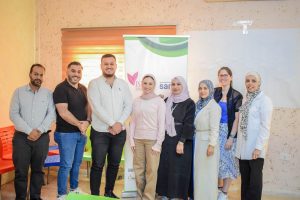
-
The Women’s Business Center in Mafraq, funded by AFD
The Women’s Business Center in Mafraq, funded by AFD, empowers women by providing skills training, entrepreneurship support, and safe spaces for growth. It begins with a needs assessment to identify challenges and opportunities, followed by capacity-building programs covering business planning, financial literacy, marketing, and personal development.
The center fosters a supportive environment through mentoring, networking, and counseling services for women affected by violence. Advocacy efforts focus on promoting women’s entrepreneurship and gender equality through awareness campaigns, training programs, and public initiatives to combat violence against women.
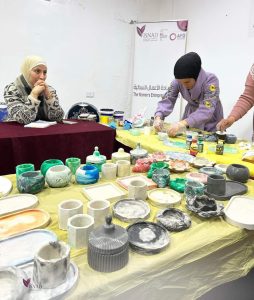
-
The Waste Recycling Project – Bio Lab with Oxfam
The Waste Recycling Project – Bio Lab with Oxfam focuses on converting organic waste into nutrient-rich fertilizer, enhancing soil fertility and reducing environmental pollution. It provides the necessary equipment and infrastructure to establish a functional bio-lab for sustainable waste management.
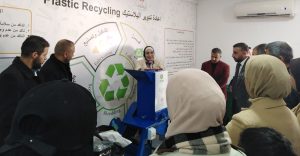
-
The Makanti Project for Empowering Women in Public Transportation, funded by USAID
The Makanti Project for Empowering Women in Public Transportation, funded by USAID, aims to create a safe and harassment-free transit environment for women. It promotes awareness campaigns and trains public transportation workers to ensure safer commuting experiences.
The project also advocates for policy changes to enhance women’s safety in public transport. By fostering a more inclusive and secure transit system, it empowers women to access opportunities without fear or restriction.
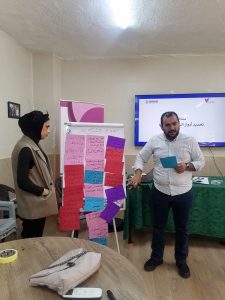
-
The Sawt Project for Advocacy, funded by USAID
The Sawt Project for Advocacy, funded by USAID, empowers marginalized communities to advocate for their rights and needs. It provides training on advocacy techniques, community organizing, and effective media engagement.
By equipping individuals with the tools to raise their voices, the project fosters active civic participation and strengthens community-led initiatives for lasting social change.
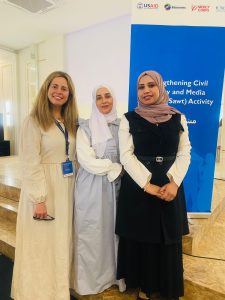
-
The Entrepreneurship Project, in partnership with Aflatoun International Network
The Entrepreneurship Project, in partnership with Aflatoun International Network, empowers youth in Jordan and Turkey with entrepreneurship and financial literacy skills. It offers workshops, mentoring, and practical training to help young entrepreneurs develop their ideas.
The project also provides access to seed funding, enabling participants to launch and sustain their businesses. By fostering innovation and self-reliance, it equips youth with the tools to succeed in the economic landscape.
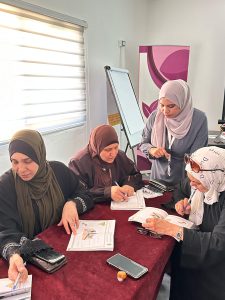
-
The Smart School Project
The Smart School Project promotes environmental awareness among students by encouraging sustainable practices in schools. It focuses on water conservation, cleanliness, energy efficiency, and innovative solutions like graywater recycling.
Through water-saving devices, waste sorting, energy-efficient lighting, and treated wastewater reuse, the project fosters a culture of sustainability. By educating students, it empowers them to adopt eco-friendly habits for a greener future.
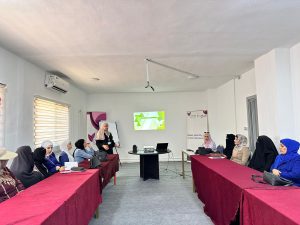
-
Anti-Underage Marriage Project
Anti-Underage Marriage Project, focuses on raising awareness about the rights of girls and the negative impacts of child marriage on their health and future. It involves training women’s rights experts to lead awareness sessions in Mafraq Governorate, targeting both girls and parents.
By preparing trainers on the issue, the project aims to sustain and expand these campaigns, shifting societal attitudes and ensuring that girls in underserved communities, like Mafraq, can access and assert their rights for a better future.
